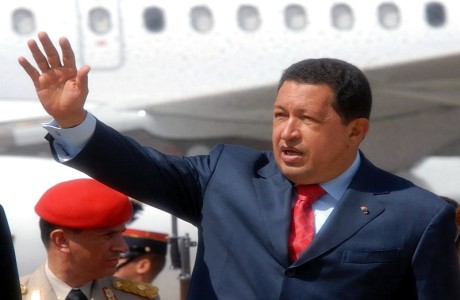Venezuela has proposed paying Exxon Mobil Corporation US$1 billion in compensation for the nationalisation of its assets in 2007, much less than the US oil giant wanted, the energy minister said on Wednesday. In a telephone call to Reuters, Energy Minister Rafael Ramirez also denied that the government of President Hugo Chavez was negotiating with Exxon separately from an ongoing arbitration process at New York’s International Chamber of Commerce. “Our proposal is US$1 billion for its assets …. We are not in negotiations with Exxon Mobil, nor has it crossed our minds to approach them,” Ramirez said. “There are no negotiations outside the arbitration tribunal. We have said that the ruling of the Chamber of Commerce is coming out soon, but we do not know when.”
Venezuela is battling about 20 arbitration cases triggered by nationalisations that were ordered by Chavez’s socialist administration. The biggest by far are the cases brought by oil majors Exxon and ConocoPhillips. Verdicts against the South American OPEC member will likely run to billions of dollars, which could put pressure on public finances ahead of a presidential election in October 2012, when Chavez will be seeking a new six-year term. Earlier last Wednesday, some media quoted a senior Venezuelan official, Prosecutor General Carlos Escarra, telling reporters the company had cut its compensation demand to US$6 billion. That was much more than Venezuela has banked on paying—but the comments caused speculation that the government might be in negotiations and that a final deal could be near.
In a statement late on Wednesday,Venezuela’s state oil company PDVSA said Exxon’s demand was excessive and insulting. “The state oil company is not willing to pay the sum sought by Exxon Mobil as it believes the amount is outrageous, abusive and intended to charge the people for what is the sovereign exercise of its oil policy,” PDVSA said. The Exxon and Conoco cases stem from the 2007 state takeover of extra heavy crude projects in Venezuela’s Orinoco Belt, one of the biggest oil deposits in the world. The two companies originally claimed more than US$40 billion in combined compensation, while Venezuela’s state oil company PDVSA calculated the assets, after payments to creditors, were worth less than US$2 billion.
Barclays Capital said a possible settlement in the Exxon case, which has so far been perceived as a risk by Wall Street, could be an opportunity for Venezuela to ratify its willingness and capacity to pay. “We think high oil prices are supportive of the country’s cash flow, and it should be able to fulfill its commitments in the next two years,” it said in a research note. The dispute with Exxon is particularly fractious. In early 2008 the company won a court order to freeze US$12 billion of PDVSA assets. The freeze was swiftly overturned. Earlier this year, Ramirez told Reuters that the Chavez government had calculated that it would pay no more than US$2.5 billion in total to Exxon and Conoco.
Some analysts say PDVSA might have to sell overseas holdings to meet a big compensation bill. The company has cash flow problems despite high oil prices because most of its income goes toward funding Chavez’s socialist spending. But Ramirez says PDVSA is fully solvent, would not have to sell assets, and already has a compensation plan in place.



